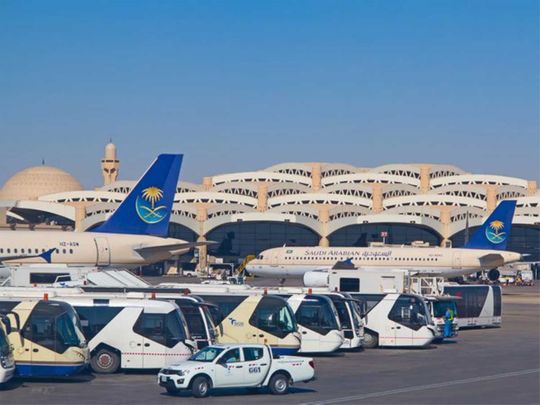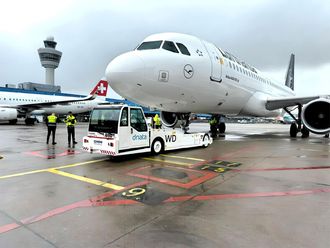
The International Air Transport Association (IATA) on Wednesday lowered its 2020 passenger traffic forecast for the Middle East to reflect a “weaker-than-expected” recovery.
Passenger numbers in the region are expected to reach only 30 per cent of 2019 levels, down from the 45 per cent that was predicted in July. The Middle East is expected to see 60 million travelers in 2020, compared to 203 million last year, the industry body said during a webinar.
In 2021, demand in the region will strengthen to 45 per cent of 2019 levels to reach 90 million travelers.
“Restoring air connectivity is vital … to restart Africa and the Middle East economies, and we really need to push, everybody to work together … to make sure that we restart the industry,” said Muhammad Ali Albakri, Regional Vice-President at IATA.
The forecasts depend on the situation of the virus spread, government restrictions, and the ability of airline operators to go back to “normal” in absolute numbers, said Albakri.
Africa is hit too
Along with the Middle East, airlines in Africa were also hit particularly hard by the pandemic. IATA expects passenger numbers in the region to be at around 45 million in 2020, compared to 155 million last year.
It will have close to 70 million travelers in 2021 or around 45 per cent of 2019 levels, IATA said.
Global traffic started to pick up globally in the months of April and May, but both Africa and the Middle East are “lagging behind the global recovery,” said Albakri.
Cargo shines
Cargo has not experienced “major drops” predominantly because of the “COVID economy”. With the rise in demand for PPP and e-commerce, “actual cargo volumes haven't dropped anywhere near as much,” said Glyn Hughes, IATA Global Head of Cargo.
In August, air cargo capacity for Africa was down 38 per cent from 2019, while Middle East’s capacity was lower by only 24 per cent. “They have fared better in terms of the reduction in capacity … which reflects the speed by which carriers in that region mobilized passenger aircraft for cargo only operations,” said Hughes.
Jordan-Israel agreement
IATA welcomed the recent overflight agreement between Jordan and Israel that allows for flights to cross over both countries’ airspace.
The move will result in a saving of 155 days of flying time per year and an annual reduction in CO2 emissions of about 87,000 tonnes or the equivalent of nearly 19,000 passenger vehicles being taken off the road for one year, said IATA.
“The direct routing will cut return journey times for passengers by about 20 minutes and reduce CO2 emissions. Airlines will also save on fuel costs which will help as they struggle to survive the effects of the COVID-19 pandemic,” said AlBakri.











